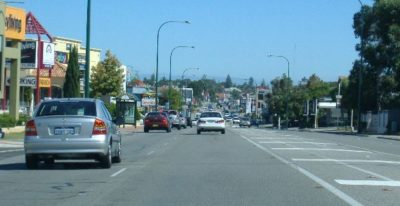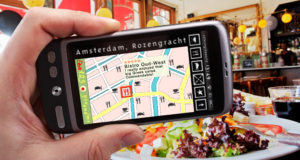Black boxes in our cars may soon become a reality in all cars, tracking and taxing every mile we drive.
A lack of cash to repair the decaying highway infrastructure reportedly has prompted the high-tech data boxes idea. The black boxes would fit onto the dashboard of our vehicles, following our every move and then handing us a supposedly monthly or yearly bill.
Not surprisingly, Tea Party members and civil libertarian groups such as the ACLU are opposed.
A black box pilot project passed the US Senate last year. Multiple states are pushing for a decision and plan to use the data to determine tax bills, and the funds generated would be at least partially used to pave and repair roadways.
“This really is a must for our nation,” said Hasan Ikhrata, the executive director of the Southern California Association of Governments. “It is not a matter of something we might choose to do. There is going to be a change in how we pay these taxes. The technology is there to do it.”
Off The Grid News recently reported on black boxes in cars and the privacy concerns many groups have. But the issue of taxes takes the proposal to another level.
The middle class and folks in rural areas would likely be the hardest hit by the black box mileage tax. Taxpayers outside of urban areas often drive 40 miles or more to work each morning. The middle class, which must pony up to fund an every-growing federal budget, would be digging even deeper into their pockets if Congress goes forward with this proposal. Ever-increasing gas prices have forced more non-urban dwellers to carpool to work. Also, families wanting to take a cross-country road trip might have to think again.
Discover The Only Way Back To True Freedom And Liberty In America…
“Urban liberals,” the Times said, support the idea because it could “change driving patterns in ways that could help reduce congestion and greenhouse gases.”
In 2012, the US Senate approved a $90 million pilot project which involved black boxes being placed into 10,000 vehicles. The leadership in the House of Representatives thwarted the program after rural lawmakers voiced stringent opposition.
The reason the boxes are being considered is because the Highway Trust Fund – used to pave roads — is broke. The fund is financed by taxes garnered from gas pump sales, and politicians are reluctant to raise the 18.4 percent federal per-gallon gas tax – even though it has not increased in two decades.
University of Minnesota transportation policy expert Lee Munnich stated that the gas tax in simply not “sustainable.” Munnich also said, “This [black boxes] works out as the most logical alternative over the long term.” Pennsylvania Republican Representative Bill Shuster also supports the black boxes as a source of tax revenue for highways. Shuster is the chairman of the House Transportation Committee.
Unhappy with the congressional foot-dragging on the issue, several states are moving ahead with their own pilot programs. Oregon appears to be the most eager to enact a mileage-based tax system, the Times said. The state has convinced 5,000 drivers to put black boxes in their cars. The drivers who elected to put the recording devices in their cars will now pay mileage fees instead of gas taxes to Oregon. Nevada has also recently completed a similar pilot project and New York City is considering one, as well. Illinois is in the midst of attempting the same program on a strictly limited basis solely with trucks. The I-95 Coalition, which is comprised of 17 state transportation departments in Florida, Virginia, Maryland Pennsylvania, and other states, is currently researching how to implement a car black boxes program also.
Nevada Department of Transportation Strategic Performance Management Director Alauddin Khan said, “Concerns about Big Brother and those sorts of things were a major problem. It was not something people wanted.”
The Nevada ACLU said:
It would be fairly easy to turn these devices into full-fledged tracking devices. There is no need to build an enormous, unwieldy technological infrastructure that will inevitably be expanded to keep records of individual’ everyday comings and goings.
How do you feel about the new gadgets being used to assess a mileage tax?
 Off The Grid News Better Ideas For Off The Grid Living
Off The Grid News Better Ideas For Off The Grid Living





